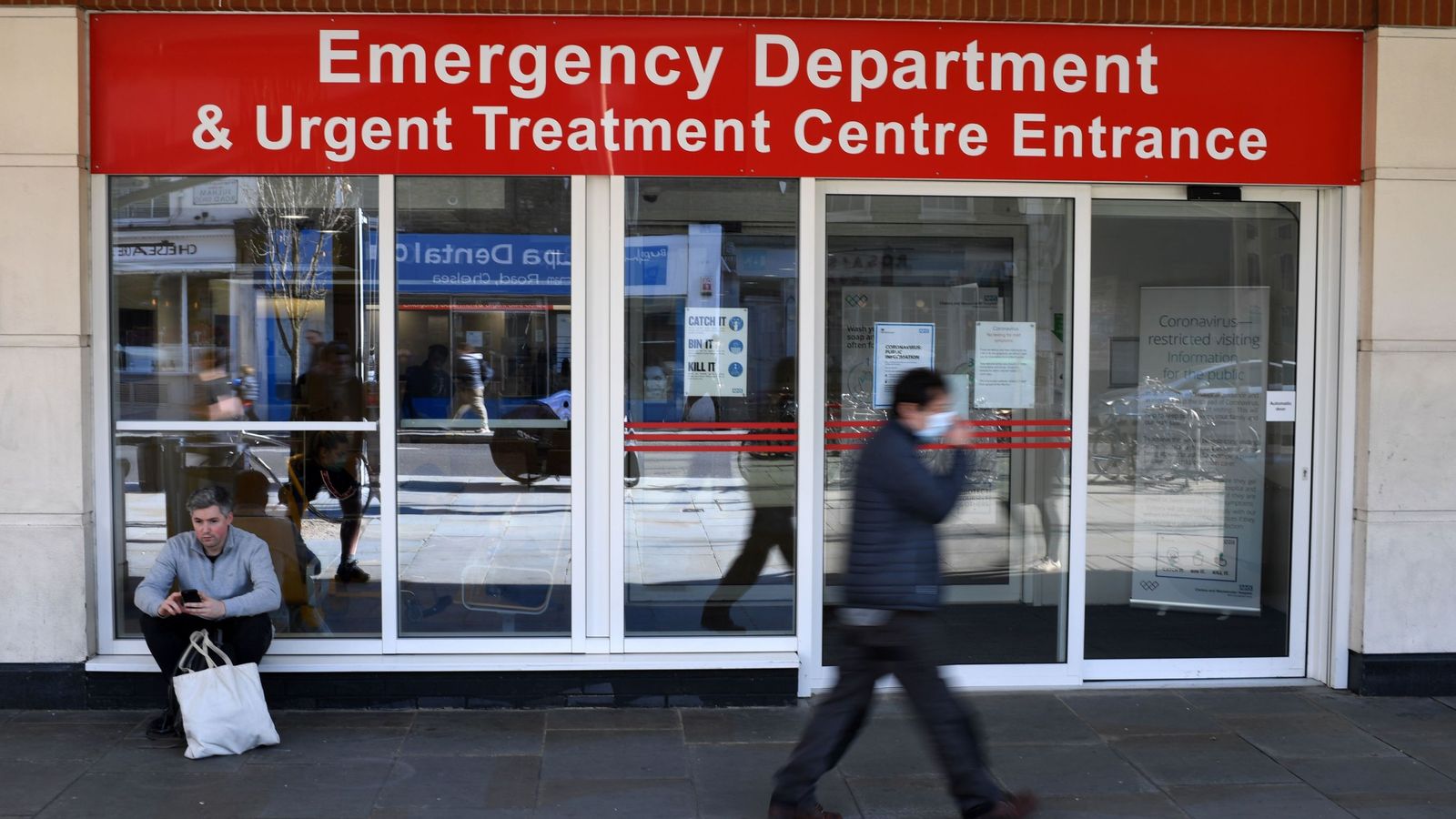
More than 70% of early coronavirus patients who have been admitted to intensive care units in the UK are men, with the vast majority having no severe existing conditions prior to being infected, official figures reveal.
The first analysis of people receiving critical hospital treatment after testing positive for COVID-19 spans 196 patients, who were all admitted between 29 February and 19 March.
The data covers all NHS adult, general intensive care and combined intensive care and high dependency units across England, Wales and Northern Ireland, plus some specialist critical care units.
It was compiled by the Intensive Care National Audit & Research Centre.
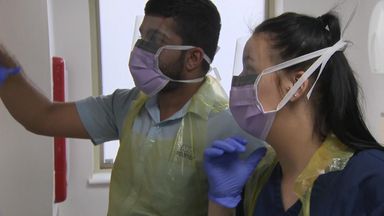 Image: Staff wearing protective masks at Heartlands Hospital, Birmingham
Image: Staff wearing protective masks at Heartlands Hospital, Birmingham
What is the profile of coronavirus patients in critical care?
Advertisement
Of the 196 patients, 139 (71%) are men and 57 are women (29%).
The average age of patients is 64, with those aged between 70 and 79 the most common group at just under 30%, followed by those aged 60 to 69 and then those between 50 and 59.
More from Covid-19
Of critical care admissions, 10% are aged 40 to 49, with those aged 30 to 39 making up 5%.
:: Listen to the Daily podcast on Apple Podcasts, Google Podcasts, Spotify, Spreaker.
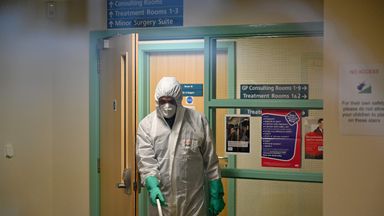 Image: County Oak Medical Centre in Brighton
Image: County Oak Medical Centre in Brighton
Were those admitted to critical care in good health before being infected?
None of the patients required “total assistance” to complete daily activities prior to becoming ill, with only 23 (13%) requiring “some assistance” and 155 (87%) requiring none at all.
Only three people (1.6%) had a severe respiratory condition before contracting coronavirus, four (2.1%) had a severe kidney condition, and seven (3.7%) had an impaired immune system.
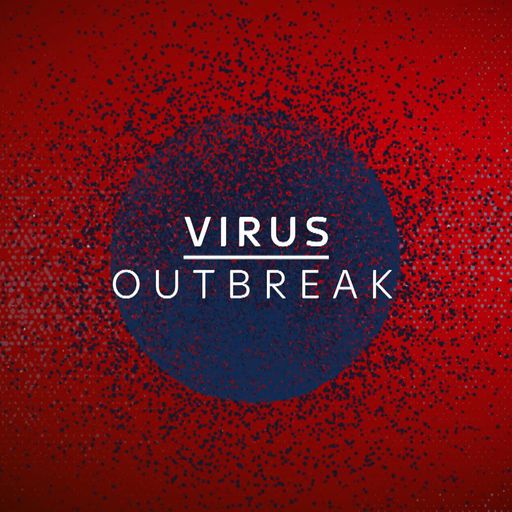
Coronavirus UK tracker: How many cases are in your area
Fifty of those admitted (28%) had a BMI, or body mass index, of under 25, and 56 people (32%) had a BMI of between 25 and 30.
There were 58 people (33%) with a BMI of between 30 and 40, and 13 (7%) had a BMI of more than 40.
According to NHS England, adults with a BMI of 23 or more have an “increased risk” of developing some long-term conditions such as type 2 diabetes, while a score of more than 27.5 means they are at high risk.
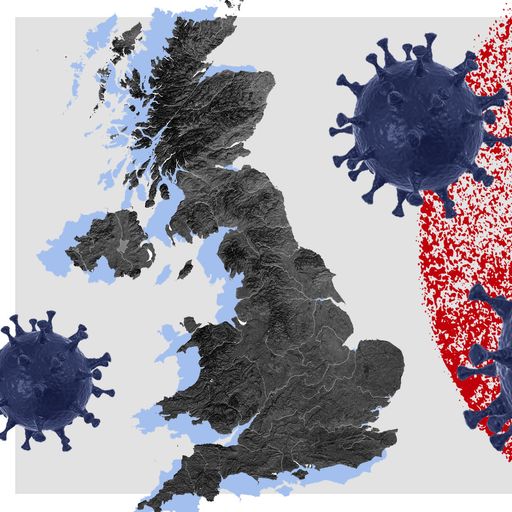
Coronavirus: The infection numbers in real time
Patients were generally given a good chance of survival.
Their average APACHE II (Acute Physiologic Assessment and Chronic Health Evaluation II) score, used to predict survival chances, was 16 out of possible 71 (higher = more risk of death).
 How to practice social distancing
How to practice social distancing
How long does it take for people to be discharged?
Only 17 people (9%) from the 196 have been discharged from critical care, and 16 (8%) have died.
There are still 163 (83%) in an intensive unit.

How many people have recovered from COVID-19? The numbers explained
For those who have been discharged or who have died, the average stay in critical care was three days.
But more than half of the 196 patients (104) have spent seven days in intensive care, with 37 of them having been in intensive care for 18 days – a sign of just how much demand there will be on vital beds for COVID-19 patients.
Jenny Harries, deputy chief medical officer for England, said on Sunday that 12% of adult critical care beds were currently occupied with coronavirus patients, adding: “That will change drastically as we go through the epidemic.”
 PM: ‘Don’t think fresh air provides immunity’
PM: ‘Don’t think fresh air provides immunity’
What treatment was given to those who were discharged or died?
Eleven of the 33 people (33%) who were discharged or who died received advanced respiratory support.
Six (18%) received advanced cardiovascular support and four (12%) received advanced kidney support.
Across all 196 patients in the data, 132 (75.4%) received mechanical ventilation within 24 hours of admission.

